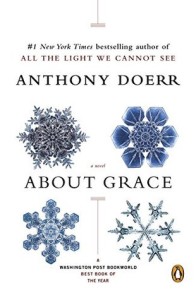By a strange coincidence, I stumbled on another story with a protagonist whose dreams interact with our waking world. Unlike in The Lathe of Heaven, David Winkler’s dreams do not change the world, but they sometimes predict with uncanny accuracy what will happen.
It’s a heavy burden: to see unfolding before you the events you alone know are leading to tragedy, unable to convince others. Only his mother believed him, after an incident when he was a young child. He dreams of meeting a woman—the woman, as Sherlock Holmes would say—in the grocery store and when he does, pursues Sandy despite her wedding ring.
He does win her, but when later he dreams that he accidently drowns their infant daughter Grace, he is unable to persuade her of the looming danger. The only way he can think of to prevent that tragedy is to run away from both of them. Landing in St. Vincent with no means to support himself, he is eventually adopted by a local family.
Winkler is more sensitive than most people. Isolated since his mother’s death, struggling with social norms, he makes strangely self-destructive decisions. These put him in challenging and life-threatening situations, whether it’s starving on a Caribbean beach, lost in a desert without his glasses, or suffering through a bitterly cold winter in the northern Yukon with only a wood stove for heat.
There he again takes up his study of snowflakes, abandoned when he ran off with Sandy. Water in all its forms is a recurring character in this book. “We live in the beds of ancient oceans.” Doerr brilliantly integrates the science into the story so that it doesn’t stand out.
I had spent a long time dissecting Doerr’s incredible second novel All the Light We Cannot See, which won the Pulitzer Prize. Like Winkler incredulous at the intricacy of a single snowflake, I looked at a single page of that book, a single paragraph, a single sentence. I was in awe of the brilliance of the overall structure and of each atomic fragment.
While the language here is equally gorgeous and has moments of transcendence, especially when describing nature’s power and beauty, this first novel of Doerr’s does not quite hang together for me. The jolting movements between the phases of Winkler’s life left me gasping for air; the mentally and physically punishing stretches made me want to skip ahead; and most of the major characters did not fully come to life for me.
This could be because I was reading the book during a stressful time. The great teacher/writer/agent Donald Maass asks us writers to consider if our protagonist is someone readers will want to spend a substantial amount of time with. Ultimately, for me at least, Winkler was not interesting enough to engage me for the days it took to read this book.
Yet I loved the role of nature in all its majesty. I loved the poetry of the writing. I loved the liminal space between opposites: heat and cold, love and hate, conflict and reconciliation. I loved the ending.
Have you read a novel where you loved the ending?
